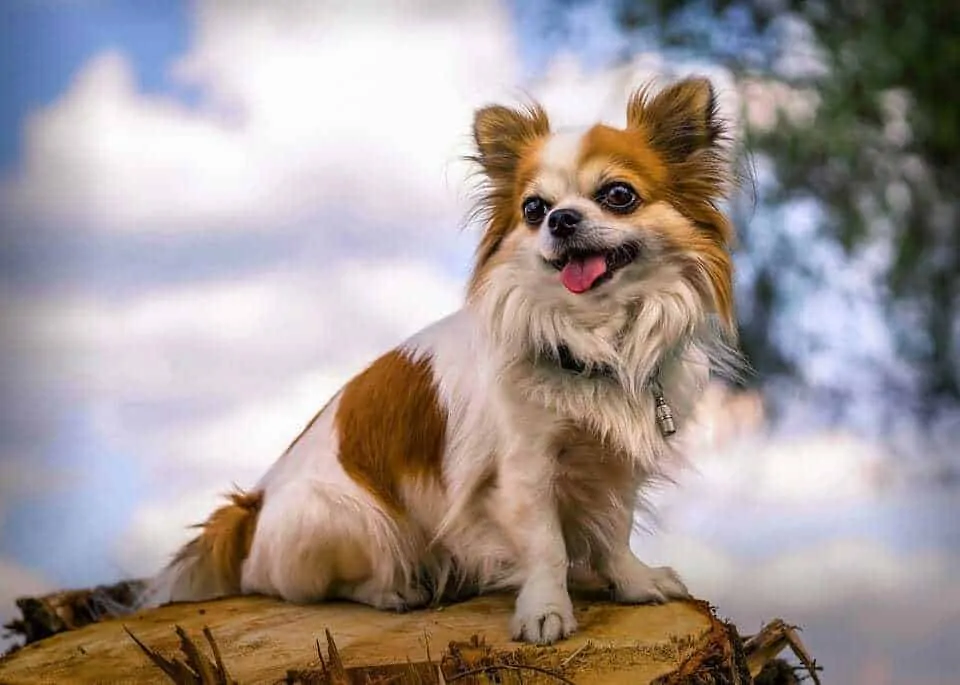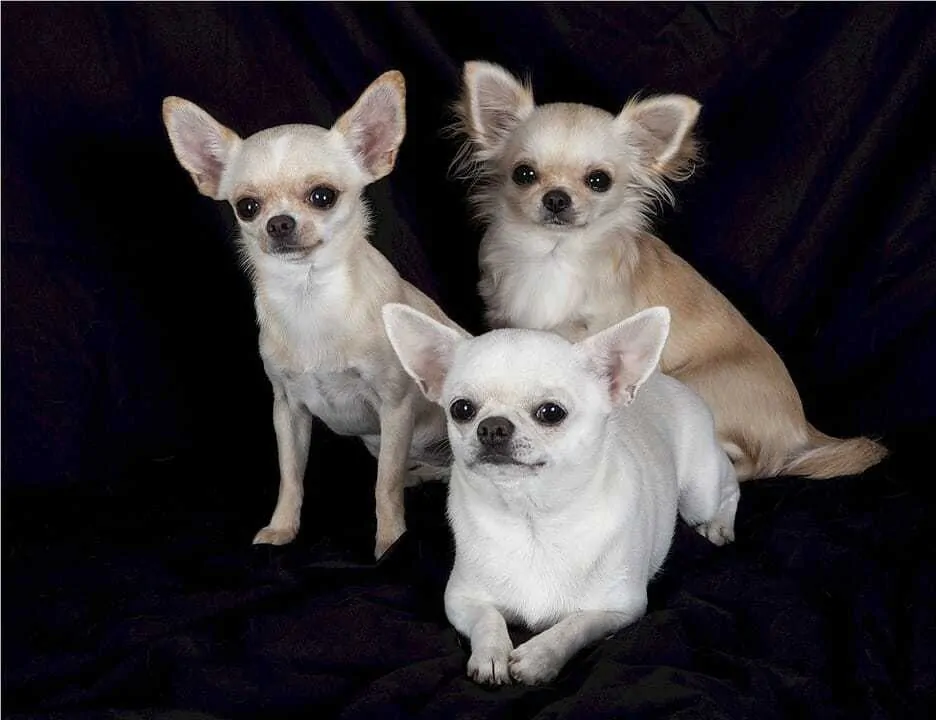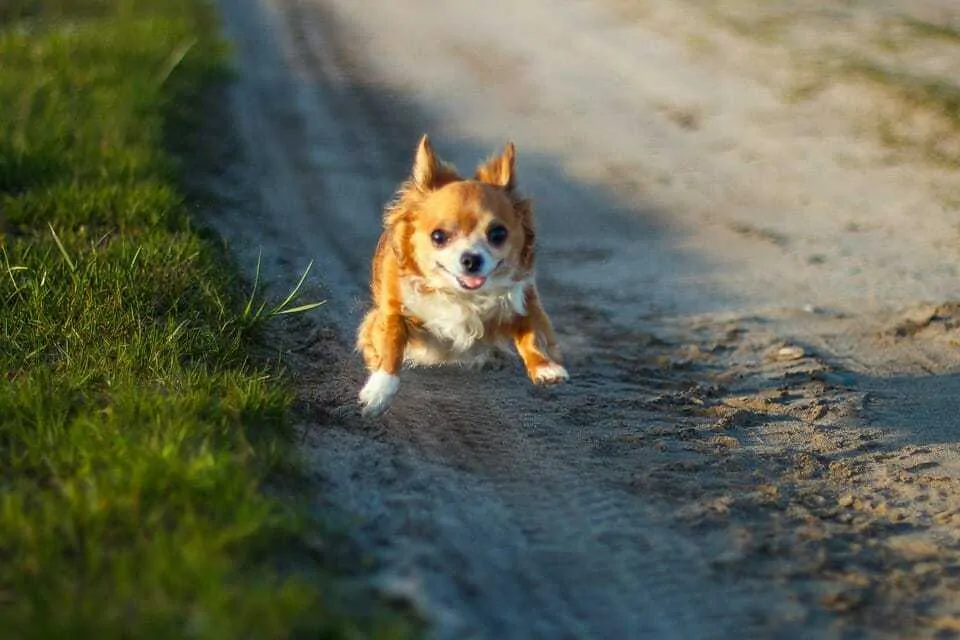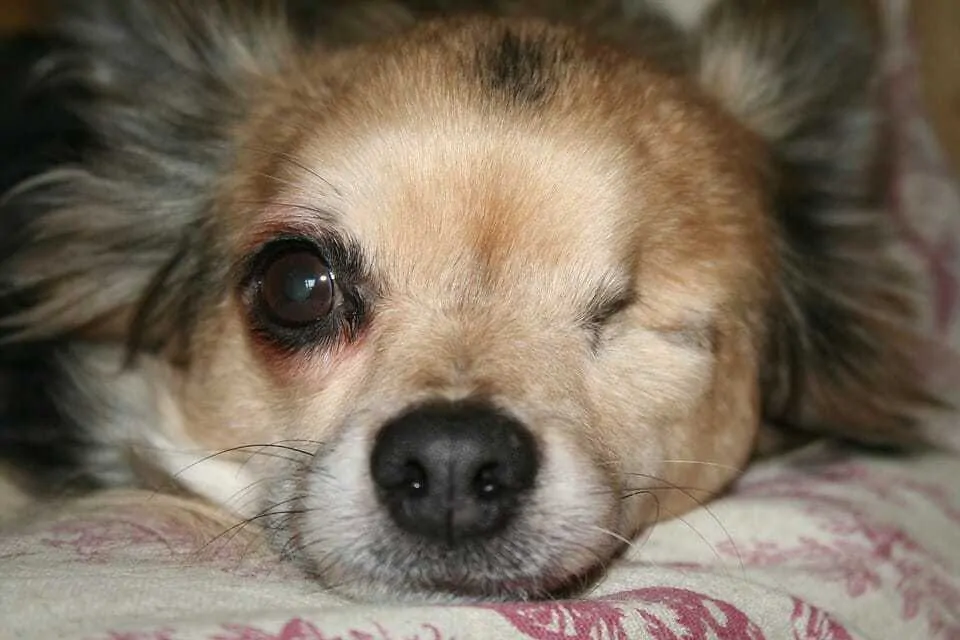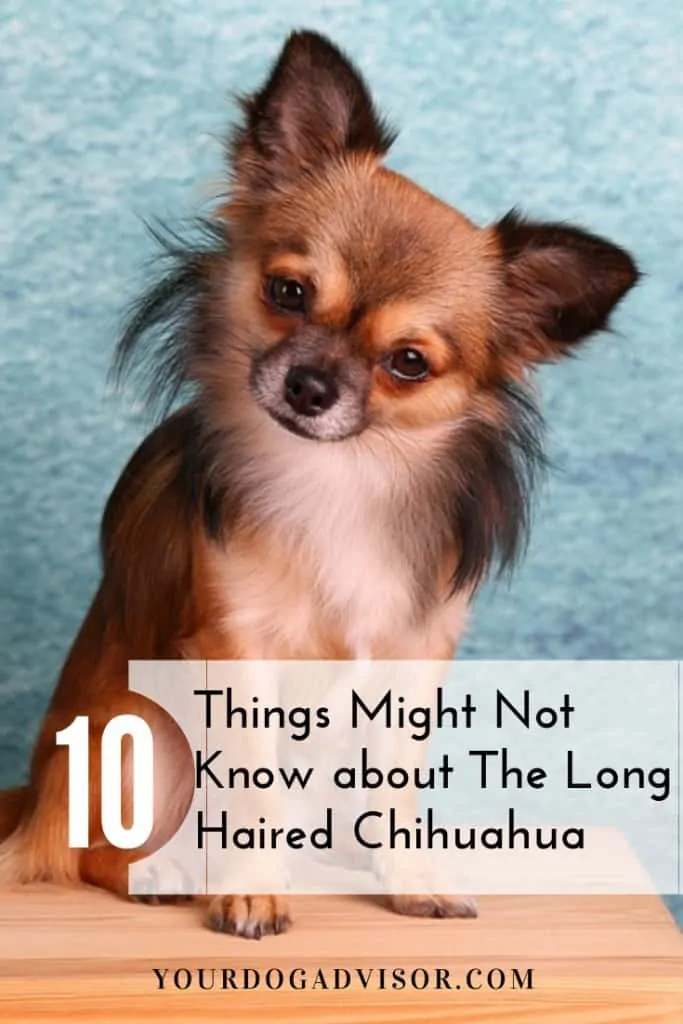Many people make the mistake of thinking that a Chihuahua will be a perfect lap dog that will enjoy just sitting on your knee and being carried and cuddled all day. This breed is actually super intelligent, often very spunky, and they need plenty of training and stimulation to make sure that they don’t start developing problem behaviors. If you put the time in, they can make great, loyal, adaptable and playful companions.
The Chihuahua has two coat types, the short (or smooth) coated variety and the long coated type. In this article, we will focus on the long haired chihuahua but, be aware that other than general appearance and grooming requirements, most of the information is applicable for both types.
The Long Haired Chihuahua is a smart, brave and loyal breed
Contents
1. Did You Know They Are Linked to the Aztecs?
While most people know that the Chi (as the breed is often affectionately nicknamed) originates in Mexico, their background is a very ancient one, of possibly at least one thousand years. Back in those days the Chi’s ancestor was called a Tichichi and was a little bulkier and bigger than the breed is today and was believed to be much treasured by the Aztecs.
Where Their Name Comes From
Their name is actually a Mexican State and this was where the breed, looking more like they do today, was discovered before being brought back to the United States.
2. Despite Their Longer Coat, Their Grooming Regime is Still Relatively Low Maintenance
Even though the Long Haired Chihuahua’s will require more grooming than their short-haired compatriots, their coats are still relatively low maintenance. A comb and brush through about once a week is generally enough to avoid them becoming matted or tangled. The Long Haired Chihuahua does shed but it is not an excessive amount like some very thick double coated breeds. The coat of the Long Haired Chihuahua will not need trimming either. They come in a wide variety of colors.
3. The Long Hair Does Not Appear Straight Away
When chihuahuas are born their coats all look the same, the longer hair generally does not appear until months later. Sometimes it can come in quickly but other times it can take up to 18 months to two years for the full coat to come through.
4. The Long Haired Chihuahua Is Not Any Different to their Short Haired Relatives
Apart from the coat, long and short coated chihuahuas are pretty much identical. Yes, each dog will have their own individual personality traits but the general breed traits are the same across both varieties. There are sometimes claims that one coat type has a more aggressive or more placid or more playful personality than the other but this is unfounded. Each dog is an individual and they will also be affected by how they are raised but the coat type does not have any bearing on this.
There is no difference, other than coat appearance, between the long and short coated varieties of Chihuahua
5. Make Sure to Appropriately Socialise and Train Your Long Haired Chihuahua
Without proper and careful early socialization and then ongoing training, Chi’s can become wary of strangers, guardy of their humans and often times yappy. This is often because they can be inadvertently spoilt and treated like the baby of the family. Regardless of their size, it is important to remember that the Long Haired Chihuahua is a dog and they will benefit from all the same types of training, enrichment and boundaries that other dogs have.
Why Important to Socialize
It is important to ensure they are well socialized from an early age, but be careful not to overexpose them though or leave them unsupervised or to be roughhoused by a larger breed. They should also be carefully exposed to lots of different environments and people rather than being coddled and kept sheltered. If they are just kept purely as a lapdog, they can easily become bored and lack confidence.
6. A Harness is Generally a Better Choice for the Breed Instead of a Collar
Because they are a very small dog with a little, delicate neck usually they are best wearing a harness rather than just a collar. Even if they are exceptionally good on the leash, it only takes one accidental pull or jerk to cause discomfort or injury. They can be prone to tracheal collapse.
The soft style harnesses, like those available from Puppia, are often popular choices. Just make sure that you pick one that can go over their head easily, fits well, does not sit high up around their neck or impede movement across their legs and that they cannot slip out of it easily.
See our article on selecting an appropriate harness for more guidance on different types.
Using a harness to protect their delicate necks is important for Chihuahuas
7. Long Haired Chihuahuas Can Still Enjoy Dog Sports As Much As the Bigger Breeds
While Chihuahuas do not need as much daily exercise as some of the bigger, more high energy breeds, they are still active, game and clever dogs. Taking part in dog sports is still possible for them, despite their size, and it can be a great way to increase your bond with your dog in a healthy way, help them to stay stimulated and happy, and it is a good alternative form of exercise.
If they are taking part in a dog sport like agility, then the obstacles will be sized appropriately for their breed.
If they are involved in an active sport, don’t forget to wait until they are fully grown before introducing them to the activity fully. If they have too much high impact exercise while their bones are still growing this can do long term damage.
Chihuahuas enjoy being active just as much as the bigger dog breeds
8. Do Your Research When Getting a Long Haired Chihuahua
Chi’s, in general, are a very popular breed, as a result of this, there are a number of ignorant and just plain cruel people that will take advantage of this to make money. There are a lot of puppy mills and backyard breeds of these types of dogs.
If you are thinking about bringing one home to join your family, make sure that you do your research to find a reputable breeder, one that has mum and her pups together in a calm, safe and nurturing home environment, will not send pups to their new home until they are at least 8 weeks old and fully weaned, and that has had their dogs health checked (Chihuahuas can be prone to a number of genetic conditions).
9. Be Aware of the Risks of the Teacup Varieties
With their growing popularity, there are now ‘teacup’ varieties of Chihuahuas being advertised. These are not a different breed, but rather the smaller dogs have been bred to produce smaller puppies. While this may seem sweet, there are often more health problems associated with these teacup varieties, including an increased risk of them having heart disease.
10. Why Not Consider Adopting?
Because of their popularity, this inevitably means that Chi’s do end up in rescue. This can be particularly true when people have underestimated the needs of a clever little dog and they have not given them the training and enrichment they need.
There are a number of breed specific rescues that it would be worth reaching out to and staying in touch with your general local shelters too.
Offering a forever home to a rescue dog can be a hugely rewarding experience.
Why not consider adopting a chihuahua, it can be a hugely rewarding experience

Jen Jones is a professional dog trainer and behavior specialist with more than 25 years of experience. As the founder of ‘Your Dog Advisor’ and the ‘Canine Connection’ rehabilitation center, she applies a holistic, empathetic approach, aiming to address root causes rather than merely treating symptoms.
Well known for her intuitive and compassionate approach, Jen adopts scientifically-proven, reward-based methods, encouraging positive reinforcement over punishment. Jen specializes in obedience training, behavior modification, and puppy socialization. Her innovative methods, particularly in addressing anxiety and aggression issues, have been widely recognized. Jen has worked with many of the world’s leading dog behaviorists and in her free time volunteers with local animal shelters and rescue groups.
